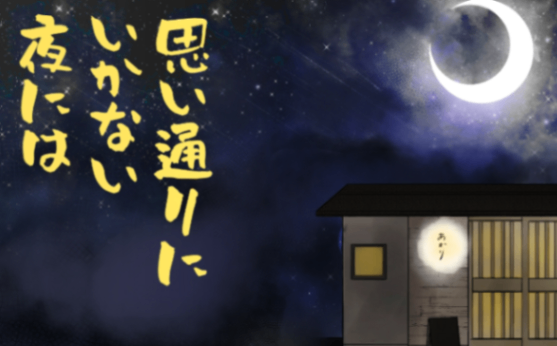とおり (toori) Meaning Japanese Grammar - Just Like That
Sandro Maglione
Get in touch with meThe expression とおり (toori) means just like that, exactly, that way.
とおり is used to state how something is the same as previously mentioned, forming the expression just like or likewise.
In this post we learn more about the meaning of とおり, how it is formed, and when とおり is used through real example sentences.
How とおり is formed
とおり can be used as a noun or as an adverb. とおり therefore follows a verb or other noun. When とおり follows a noun, the pronunciation becomes どおり:
彼は言った通り、山は本当に綺麗ですね。
Just like he said, the mountain is really beautiful.
The kanji form of とおり is 通り, where 通 indicates the road, the way.
How and when to use とおり
The expression とおり is used when we want to indicate that something is the same as what was said previously: in this way the expression translates as just like, in that way.
This meaning comes from the origin of the term とおり, which derives from the kanji 通り meaning road, passage, way.
In this sense, とおり literally means "following that way", which we then translate as in that way.
説明書のとおりにやります。
Follow the instructions.
In the example we see how とおり refers to instructions 説明書, indicating to do (やる) as written on them.
Literally the translation of the sentence would be: do just as directed by the (written) instructions.
彼は時間どおりに来た。
He arrived on time.
時間どおり means "on time", "on schedule".
言う通り e その通り: "just like that"
Two commonly used expressions that use とおり are 言う通り and その通り:
- 言う通り means
just as (you) said, and is formed by the verbsay言う followed by とおり - その通り means
just like this,just like that, where その is a demonstrative of the Kosoado series meaningthat
先生の言う通りです。
Just like the teacher said.
その通り。
That's right.
0:00.00
-1:0-1.00
思い通り: "as planned"
Another expression that uses とおり is 思い通り.
This expression uses the verb to think 思う, which as a noun becomes 思い thought.
For this reason, 思い通り means as planned, literally "following one's own thought".
You can also use the expression 思った通り, which translates as "as thought" (not something planned).
思った通りだな。
Just as I thought.
0:00.00
-1:0-1.00
Examples of とおり
元どおりにしまってください。
Put it where it was before please.
この地図のとおりに行けば、すぐに着きます。
If you follow the map, you will arrive quickly.
天気予報のとおりに、雨が降ってきた。
Just as the weather predicted, the rain has come.
From a series of Japanese コミックエッセイ:

思い通りにいかない夜には
On nights when things don't go your way
思い通り: contains the verb think 思う: as I thought; as I please, as I desire
Similar grammar points in Japanese 📚
申し訳ございません
申し訳ございません (moshi wake gozaimasen) Meaning Japanese Grammar - I Apologize
わけがある
わけがある (wake ga aru) Meaning Japanese Grammar - There Is a Reason If
わけがない
わけがない (wake ga nai) Meaning Japanese Grammar - There Is No Reason That
わけではない
わけではない (wake dewa nai) Meaning Japanese Grammar - Does Not Mean That
わけだ
わけだ (wake da) Meaning Japanese Grammar - That's Why...
わけが分からない
わけが分からない (wake ga wakaranai) Meaning Japanese Grammar - Absurd